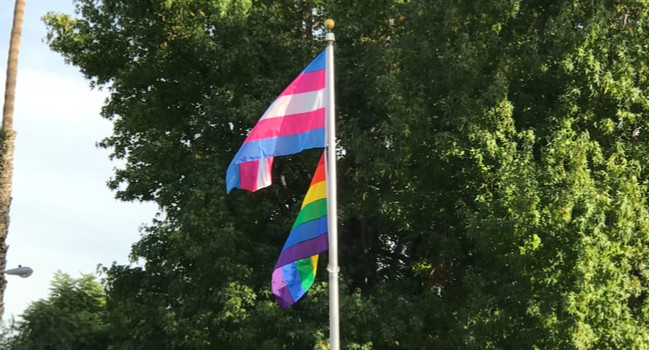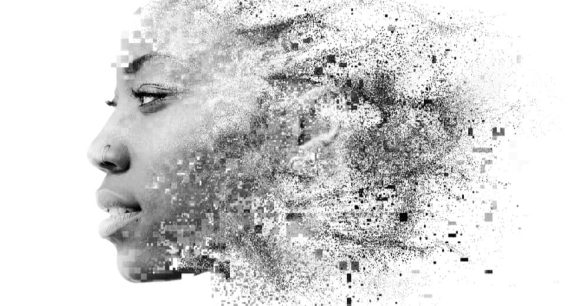Why We All Need to Fight for the Rights of Transgender Disabled People
It’s a difficult time to be disabled in America. We are stretched thin, fighting for our lives on multiple fronts. And when your own house is on fire, it’s understandable to feel that you lack the resources to fight for your neighbor’s home. But following the leak of the current administration’s anti-trans memo in late October, everyone in the disability community should be fighting for the human rights of transgender disabled people.
The anti-trans memo, recently reported in the New York Times, is a series of recommendations from the Department of Health and Human Services urging the federal government to redefine gender as a strictly binary (either male or female) state that is unchangeable and determined by the visual assessment of a person’s genitals at birth, or by genetic testing in the case of intersex people. If the recommendations in the memo become law, transgender people would be stripped of their civil rights protections guaranteed under Title IX. Our identities would be erased in the eyes of the federal government. We would have no protections at school, in the workplace, or in social services. This would be a terrible step backwards for the trans community as a whole. For disabled transgender people, however, the consequences will be the most dire, both because disabled people are more likely to rely on public programs, and because the mental health of disabled trans people is already at risk.
Following the publication of the anti-trans memo article, there was an overnight fourfold increase in calls to Trans Lifeline, a hotline for trans people in crisis. According to the 2015 National Center for Transgender Equality Survey, 31% of non-disabled transgender people reported currently experiencing psychological distress. Among disabled trans people, the rate was significantly higher: 59%. The combined rate of psychological distress, 39%, is nearly 8% higher than among cisgender people. The same survey reports that 40% of trans people have attempted suicide. Again, the rate is higher among disabled transgender people, 54%.
But being transgender, like being disabled, is not an inherently tragic state of being. Alone, or surrounded by supportive people, my trans disabled life ranges from a standard kind of nearing-middle-aged routine dullness to pretty ridiculously joyful. My big frightening radical trans disabled agenda, depending on the day, can include spacing out in my apartment with a nagging feeling that I may not have remembered to pay the gas bill, or on a more exciting occasion traveling somewhere with friends to discuss the petty grievances of our lives, the writing of novels, or bonding over incredibly silly jokes. That said, safety and respect are hard to come by and unequally distributed. The heightened rates of depression and suicidality are not because we are trans and disabled; they are because we live in a country that can’t decide if we contain the right sort of humanity to be allowed to get on with our lives.
Disabled people are no strangers to the whims of governmental agencies. I was still reliant on Social Security for my income and healthcare when I began transitioning. Changing my name and gender marker took multiple trips to Social Security, Medicare, the county courthouse, the Department of Motor Vehicles, and the passport office. All of these trips and the hours spent on hold when calling to make sure that I had all of the necessary paperwork from the previous agencies took energy that my disability didn’t necessarily allow. I always went anyway, patiently, charmingly explaining my existence to each bureaucrat, because at the time my life depended on it. Though I started this process in December 2016, I still have a Medicare card with my dead name—my fourth incorrect card—but at least it has the correct gender marker? I would be on hold with Medicare right now if I hadn’t gotten a job that offered medical insurance.
Documentation matters the most for those of us who can lose access to the services we rely on to survive.
The Department of Health and Human Services is a massive governmental agency which oversees a number of services specifically designed to serve disabled people. The memo urges other governmental agencies to adopt these destructive and regressive definitions of gender as well. If the recommendations in the memo become the law of the land trans disabled people will face a very real and immediate threat to the supports and services that they need to live. This is completely unacceptable. We must fight for the lives of our trans disabled siblings.
About Rooted In Rights
Rooted in Rights exists to amplify the perspectives of the disability community. Blog posts and storyteller videos that we publish and content we re-share on social media do not necessarily reflect the opinions or values of Rooted in Rights nor indicate an endorsement of a program or service by Rooted in Rights. We respect and aim to reflect the diversity of opinions and experiences of the disability community. Rooted in Rights seeks to highlight discussions, not direct them. Learn more about Rooted In Rights



